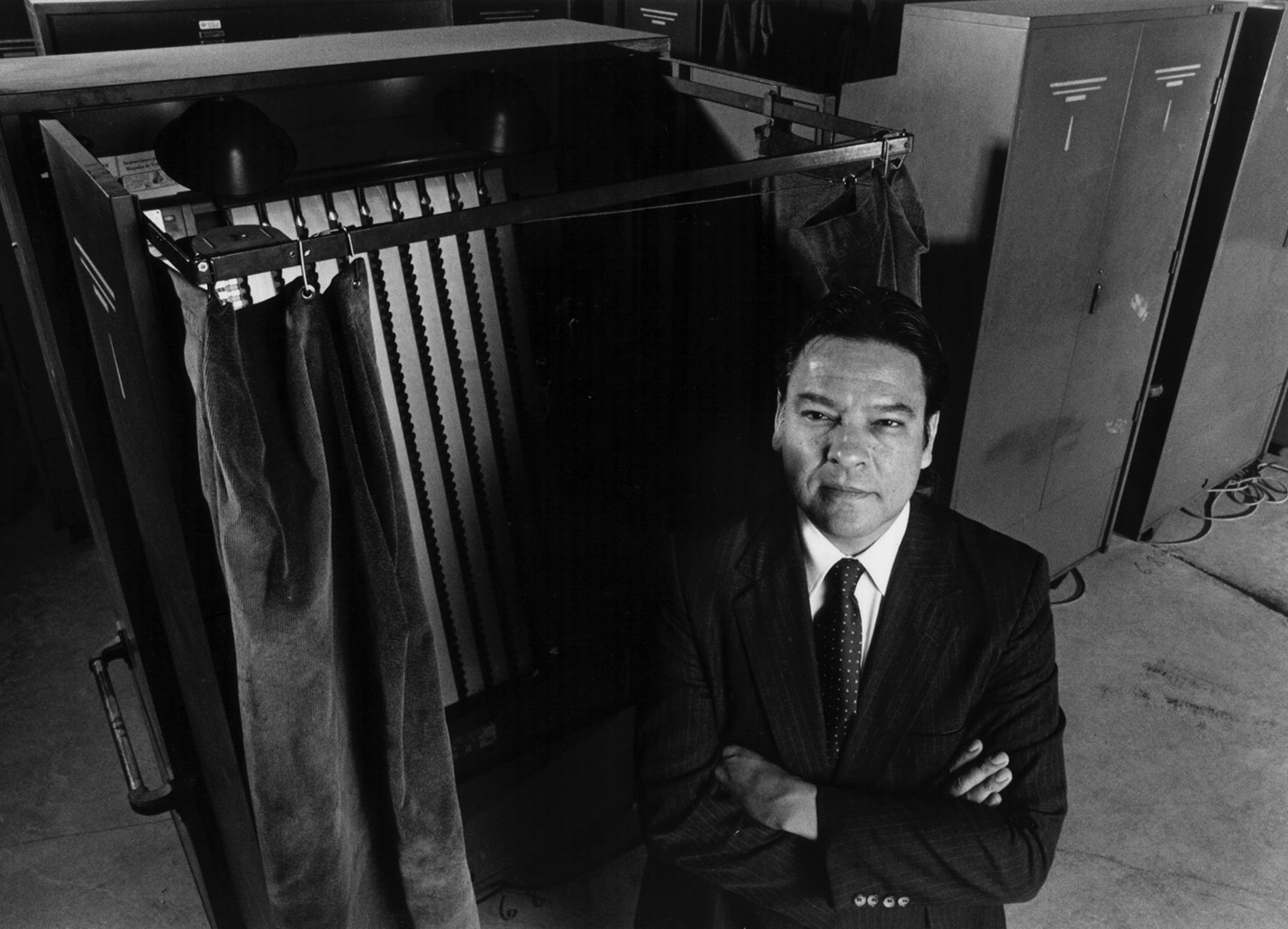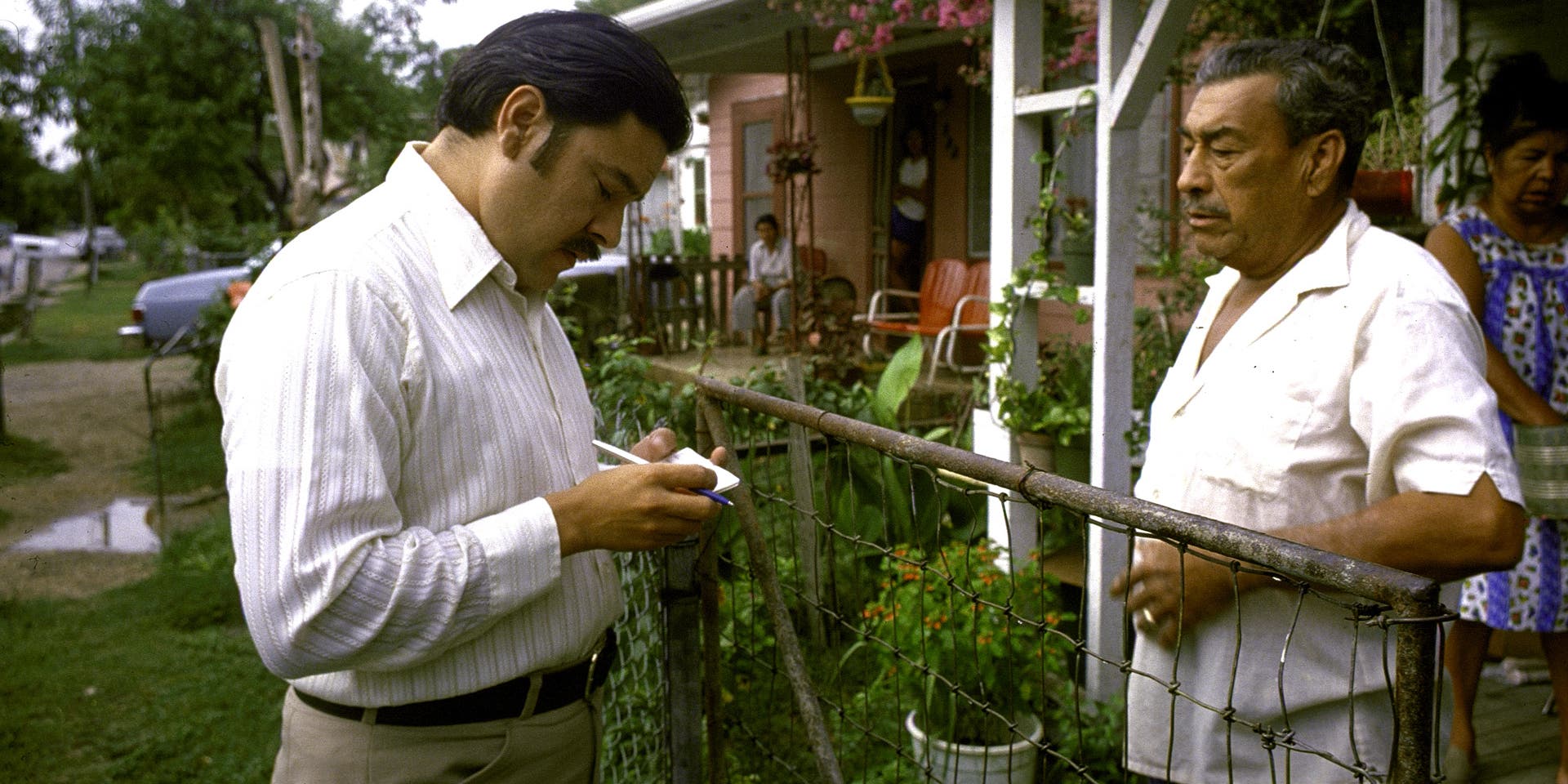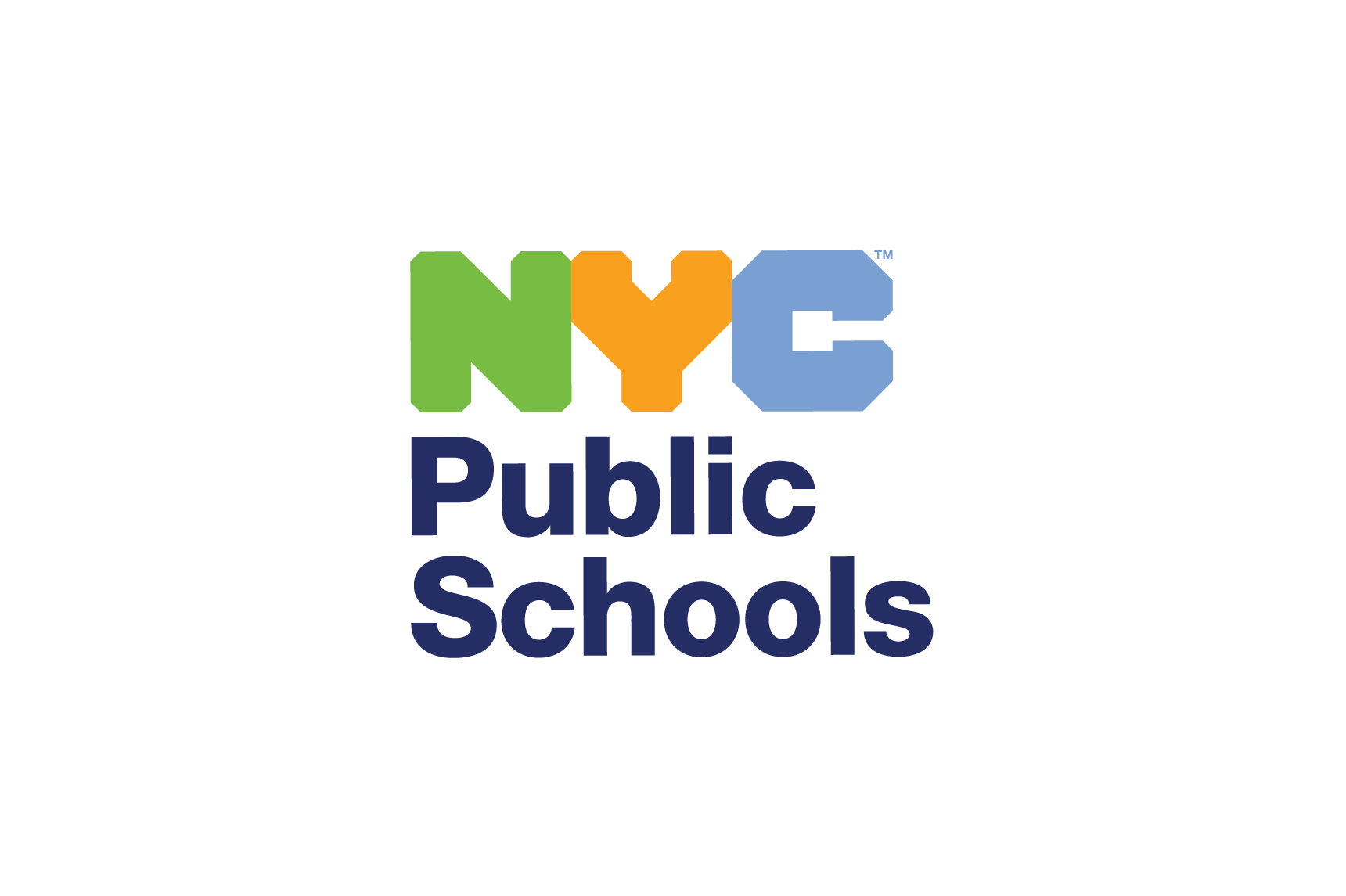'¡Su voto es su voz!': Willie Velásquez, Champion for Voting Rights
Hidden Voices began as a collaboration with the Museum of the City of New York that was initiated to help City students learn about the countless individuals who are often "hidden" from traditional historical records. Each of the people highlighted in the series has made a positive impact on their communities while serving as outstanding examples of leadership, advocacy, and community service.
In recognition of both Hispanic Heritage Month and National Voter Registration Month, we are sharing the story of Willie Velásquez, a grassroots activist and champion for Latino voting rights in the United States
When the monumental Voting Rights Act of 1965 was signed into law by President Lyndon Johnson, it ushered in a huge step towards ensuring equal voting rights for all Americans. The law outlawed discriminatory voting practices that prevented many non-white communities from participating in the democratic process. It was a huge step forward, but it was not the end of the journey. There were gaps left in the law meant that some communities—especially Latino voters—still faced many obstacles to participating in elections. The effort to close those gaps became a major civil rights fight in the decades that followed.
At the center of that fight was a man named Willie Velásquez, a Mexican American activist who founded the Southwest Voter Registration and Education Project (SVREP) to register new Latino voters. Under Willie's leadership, SVREP became one the leading voting rights organizations in the country as they reshaped the political landscape of the Southwestern United States. To this day, SVREP's slogan, "¡Su voto es su voz!" or "Your voice is your vote!" remains a rallying cry for Latino voting rights activists across the county.

William (Willie) C. Velásquez was born in 1944 and grew up in a primarily Mexican American working class neighborhood—the very communities he would fight for later in his life. This was not the only part of his upbringing that informed his activism, either. Growing up in a Catholic family and attending religious schools throughout his childhood shaped his worldview and the way that he would approach political issues in the future.
Velásquez’s first real venture into politics would come during his college years at St. Mary’s University. His time as a student overlapped with the first United Farm Workers strikes led by Cesar Chavez, Dolores Huerta, and Gilbert Padilla. Striking workers were primarily Mexican Americans who were fighting against their poor labor conditions and low wages.
This kind of protest had previously been difficult to achieve because of the Bracero program, which brought millions of Mexican American farmworkers into the United States and provided a source of cheap labor to replace any workers who spoke out against unfair wages. However, the program ended in 1964, and opened a window of opportunity for these workers to make their voices heard.
Beginning with grape pickers California in 1965, the strikes quickly spread across the country. Velásquez himself got involved with UFW protests in Texas. He had previously believed that he would pursue a career in international relations, and even had the opportunity to work at the State Department. However, his involvement with the strikes made him more interested in domestic politics and the problems facing the Mexican American community. It was a major turning point in Willie’s life.
Not long after he became involved in the UFW strikes, Velásquez helped create the Mexican American Youth Organization (MAYO) and the Mexican American Unity Council (MUAC). The goals of these organizations focused on politically empowering Mexican and Latino Americans, and addressing the problems that faced their communities.
His work with these organizations taught Velásquez a key lesson that he would carry with him throughout his career: the importance of grassroots activism. Willie watched over and over again as the communities that were most affected by the issues at hand were sidelined in favor of wealthy donors and politicians. He disagreed strongly with this approach. In response, Willie’s future organizing efforts ensured that Hispanic American voices were heard loud and clear. In fact, these principles were front of mind for him when—after facing turbulent times in his own life and career—he created the Southwest Voter Registration Project (SVREP).
SVREP was created as a non-partisan voting rights organization. To accomplish their goal of registering as many Hispanic voters as possible, Willie and the SVREP took a lot of inspiration from the Civil Rights movement. They modeled their early efforts after organizations like the Voter Education Project, which was created in 1962 with the goal of coordinating efforts to register and empower Black voters across the U.S., particularly in the South. Willie would even go on to work with the leaders of that movement, too, including John Lewis, who was then the leader of the Student Nonviolent Coordinating Committee.

Though the organization faced some early struggles as they learned what strategies worked best, SVREP was nevertheless able to register tens of thousands of voters across five states leading up to the 1976 election cycle. A major reason they were able to accomplish this was their use of data and research. SVREP staffers would analyze census data and voter rolls so that they could determine the most effective ways to target communities that were not participating in elections.
Research would continue to be an important part of SVREP’s strategy, and they would eventually charter the Southwest Voter Research Institute as the research and polling arm of the organization. It was later renamed in Willie’s honor, as the William C. Velásquez Institute.
As they grew as an organization, SVREP also expanded its mission beyond just registering voters. They also wanted to break down the many barriers their communities faced at the polls. This was a long list that included English literacy tests and voter intimidation tactics.
Making matters more difficult, as voting rights activists would succeed in fighting discrimination, their opponents created new obstacles to replace whatever practice had been outlawed. For example, until 1966, Texas required residents to pay a poll tax of $1.75 per person. This fee made voting impractical for many Mexican American families. Then, after the poll tax became illegal, Texans were instead required to re-register to vote ever year. As a result, many Latino voters were removed from the voter rolls. This meant they were not able to vote, even if they were eligible the year before.
On top of all of that, for decades, Mexican American communities were being divided into different political districts to prevent them from having unified political power. This manipulative boundary-drawing practice is known as gerrymandering.
To combat all of this, SVREP often partnered with the Mexican American Legal Defense and Educational Fund, also known as MALDEF. Most notably, MALDEF played an important role in the push to expand the VRA in 1975 to include protections for non-English speakers. Their efforts successfully resulted in amendments to the law that mandated bilingual election materials and helped to create fairer district boundaries across the Southwest.
The newly-expanded VRA made it possible for SVREP to file lawsuits with MALDEF to combat gerrymandering throughout the late 1970s and into the 1980s. To succeed, these organizations had to prove that Latinos were being purposefully underrepresented. Through their research, SVREP was able to find evidence to support their cases. For example, they learned that there were 42 school boards in Texas at the time with 50 percent or more Chicano students, and yet no Chicano elected official. As Velásquez himself wrote, this data was “beyond the realm of statistical possibility, and does not happen by accident.” By pursuing these lawsuits, SVREP was able to help create fairer political boundaries across the region.
Another one of SVREP’s major goals was increasing the number of Latino elected officials. Velásquez believed that Mexican American elected to public office would be more responsive to the needs of the Chicano community. Furthermore, Willie wanted to ensure the quality of Latino elected officials, not just the quantity. He valued politicians who were working towards empowering the Hispanic community, and held those who did not share that goal accountable for their damaging actions.
Towards the end of the 1980s, Velásquez was beginning to make SVREP into a national political force. The organization’s impact in the Southwest had already been immense, and they had begun to work with other organizations in the Midwest and Northeast to spread their reach across the country. The 1988 election cycle seemed like the perfect opportunity to continue those efforts.
Tragically, however, in June 1988, Willie died of kidney cancer at only forty-four years old. He would not get to see his vision of SVREP fully realized. Nevertheless, it would seem that he was proud of all that he was able to accomplish; according to his brother George, his last words were “qué bonito es el nuevo mundo (The new world is so beautiful).”
Thousands of mourners attended his funeral services to pay their respects, and to offer support to his wife Janie, and his three children. Among those who spoke at the funeral was Governor Michael Dukakis, who was the Democratic presidential nominee at the time. He memorialized Willie as a man who “above all… loved this country. He believed in it. He understood it. And all he asked from it was a fair share of the American dream for himself, and for every American, no matter who they are or where they come from, or what the color of their skin is."
At the time of his death, Willie was still SVREP’s fearless leader. In the time since the organization was founded, he was instrumental in organizing nearly one thousand voter registration drives in over 200 communities across the Southwest and beyond. Along with their partners, SVREP also led over 75 successful voting rights and anti-gerrymandering lawsuits. They also helped double the number of Hispanic elected officials from roughly 1500 in 1974 to over 3000 – an increase of 82 percent. In just over a decade, the Latino vote had grown to 3.7 million nationwide by 1988, in no small part thanks to Willie’s many contributions.
Since then, Latino voter participation and registration has only continued to grow thanks to SVREP’s work. By 2018, 15.5 million Latino voters were registered, a number that was expected to grown to 17.5 million voters by the 2020 election cycle.
In recognition of his many achievements, Velásquez was posthumously awarded the Presidential Medal of Freedom—the highest civilian honor given in the United States—by President Bill Clinton in 1995. The medal was presented to his wife Janie. He was only the fifth Hispanic American to receive the award at the time. The citation for the medal honored the impact that he had not just on the Latino community, but on the country as a whole, reading “Velásquez’s legacy live on in all who seek to make our democracy truly representative of America’s diversity.”
Sources
- Berman, Ari, "The Lost Promise of the Voting Rights Act." The Atlantic, 5 August 2015. Available online:
https://www.theatlantic.com/politics/archive/2015/08/give-us-the-ballot-expanding-the-voting-rights-act/399128. - Guadalupe, Patricia, "How Willie Velásquez Organized for Latino Voting Rights." History.com, 14 September 2022. Available online:
https://www.history.com/news/willie-velasquez-latino-voting-rights. - "History and Legacy of Southwest Voter Registration Education Project." Southwest Voter Registration and Education Project (SVREP). Available online:
https://www.svrep.org/history. - "Latino Civil Rights Timeline, 1903–2006." Learning for Justice, 6 July, 2017. Available online:
https://www.learningforjustice.org/classroom-resources/lessons/latino-civil-rights-timeline-1903-to-2006. - "A Latinx Resource Guide: Civil Rights Cases and Events in the United States." Library of Congress, 17 August 2020. Available online:
https://guides.loc.gov/latinx-civil-rights/svrep. - Lauter, David. "Calls Him a Man Who 'Changed World': Dukakis Eulogizes Latino Political Leader Velásquez." Los Angeles Times, 19 June 1988, sec. Politics. Available online:
https://www.latimes.com/archives/la-xpm-1988-06-19-mn-7947-story.html. - "MALDEF Successfully Pushed to Expand the Voting Rights Act to Language Minorities." MALDEF in History, 19 March, 2020. Available online:
https://www.maldef.org/2020/03/maldef-successfully-pushed-to-expand-the-voting-rights-act-to-language-minorities. - "Mexican-American Voting Rights Advocate Willie Velásquez Organized for Latino Voting Rights." History.com, 23 September 2019. Available online:
https://www.history.com/this-day-in-history/hispanic-american-activist-willie-velasquez-presidential-medal-freedom. - Orozco, Cynthia E., "Velásquez, William C. (1944–1988)." Texas State Historical Association, 1 December, 1995. Available online:
https://www.tshaonline.org/handbook/entries/velasquez-william-c. - Reyes, Raul A. "PBS Showcases Willie Velásquez, Latino Voting Rights Hero." NBC News, 3 October 2016. Available online:
https://www.nbcnews.com/storyline/hispanic-heritage-month-2016/pbs-showcases-willie-vel-squez-latino-voting-rights-hero-n657556. - Sepúlveda, Juan A. Life and Times of Willie Velásquez: Su Voto Es Su Voz. Houston, United States: Arte Público Press, 2005.
- Velásquez, William, et. al. "Voting Problems and Solutions." Southern Changes: The Journal of the Southern Regional Council, Vol. 4, No. 1., 1 November 1981, pgs. 22–33. Available online:
https://southernchanges.digitalscholarship.emory.edu/sc04-1_001/sc04-1_014. - "Voter Education Project (VEP)." The Martin Luther King, Jr. Research and Education Institute, Stanford University. Available online:
https://kinginstitute.stanford.edu/voter-education-project-vep. - "Voting Rights Act." National Archives, 8 February 2022. Available online:
https://www.archives.gov/milestone-documents/voting-rights-act.
Banner image features photograph of Willie Velásquez at a podium by George Velásquez, accessed via NBC News.

